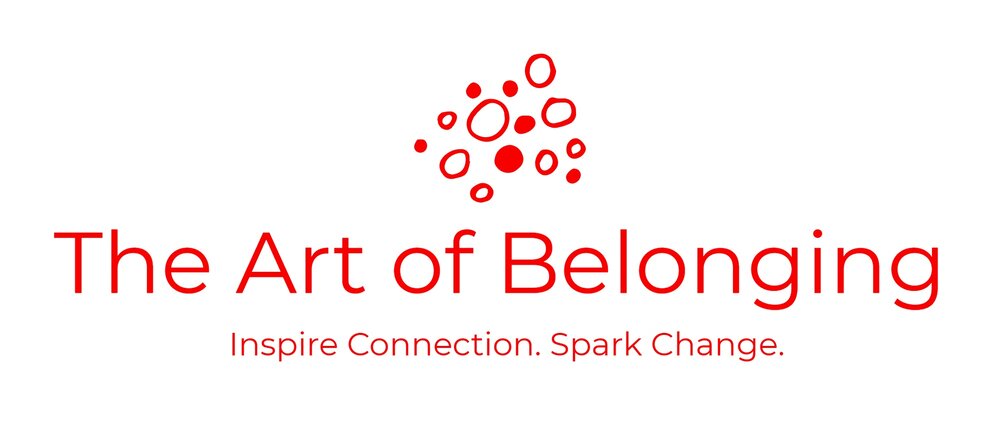I have been developing Art of Belonging for 9 months now. It’s been in mind for years. When I was a post-college AmeriCorps member, it was all I wanted to do – build community through art making. And I did! I had the energy, capacity, and drive to make it happen. It felt good in my bones to do that work. Then I thought I had to grow up and live differently, get a real job. I still thought about community but I imagined that area of my life would take care of itself. I’m not sure that has happened.
Elizabeth Marttis-Namgyel, a Buddhist teacher writes in The Power of an Open Question, “Our usual modus operandi is to try to rid our lives of suffering through rearranging things. Rather than admitting suffering into our experience, we tend to manufacture hopeful strategies of avoidance.” P. 51
Here we are, a global community in the thick of it. We were in the thick of it before, but the stakes are much higher now. Who can we depend on? The government is in a sorry state, the world and its systems are under tremendous pressure. We are here, all forced into this present moment – jolted really. We might have imagined that we could continue to work in our separate silos, going along in our lives while refugees suffer in camps, families are torn apart at our borders, racism pervades our country, and our precious earth is being quickly stripped of life. But we can’t anymore. We have been stopped in our tracks. We are all stopped in our tracks.
So I sit in my house by myself asking questions. What happens next? How can I help? Will I have enough money to weather this? Will my friends and family and neighbors be ok? Can I help? How can we work together to save this world? How will we/I be changed by this experience? I am forced to be with these questions. They don’t have simple answers and there is little action I can take at this time. I sit with the questions and that is powerful. I imagine these are the questions we are all asking. There is something connecting in the fact that our minds are all in the same place. Oh, to be together in times of despair!
Back to Elizabeth Mattis-Namgyel. She writes:
“Fixing differs from healing- it differs in attitude. Fixing aims at avoiding pain through trying to return to the good old days when we were pain-free. It has that kind of nostalgia; we just want to get back to the way things were. Such an attitude doesn’t require us to change or to fully experience our bodies. We have a goal, but we are absent for the process that leads to the goal – a process that requires us to have a new experience, a new understanding of our physical form and how we inhabit it. The fixing approach doesn’t get at the causes and condition that gave rise to our ailment. It simply rearranges our physical confusion in a way that may offer us a little relief-usually temporary-from an undesirable sensation.” P 51-52
Mattis-Namgyel is writing about the body but I think it applies to the collective body. We are in the process of having a new experience. We can’t go back to the old days. We can’t simply rearrange our systems. There is fundamental change at work. And we are being called to be with the questions.
What questions are you being called to be with?

